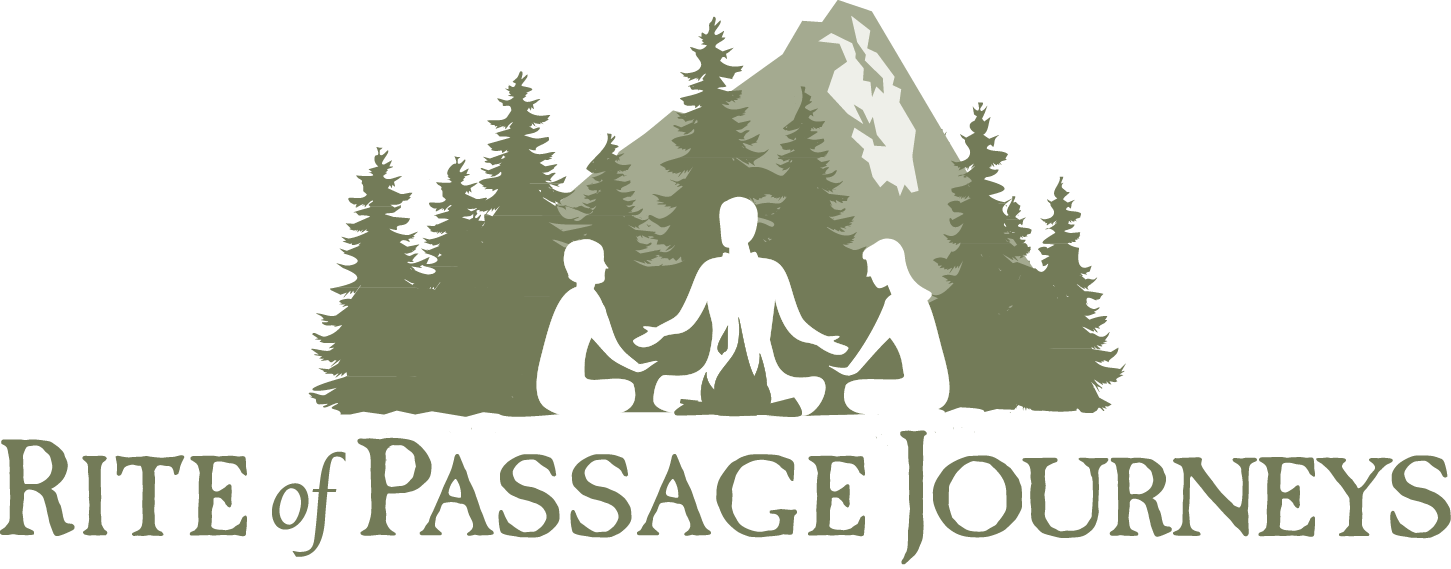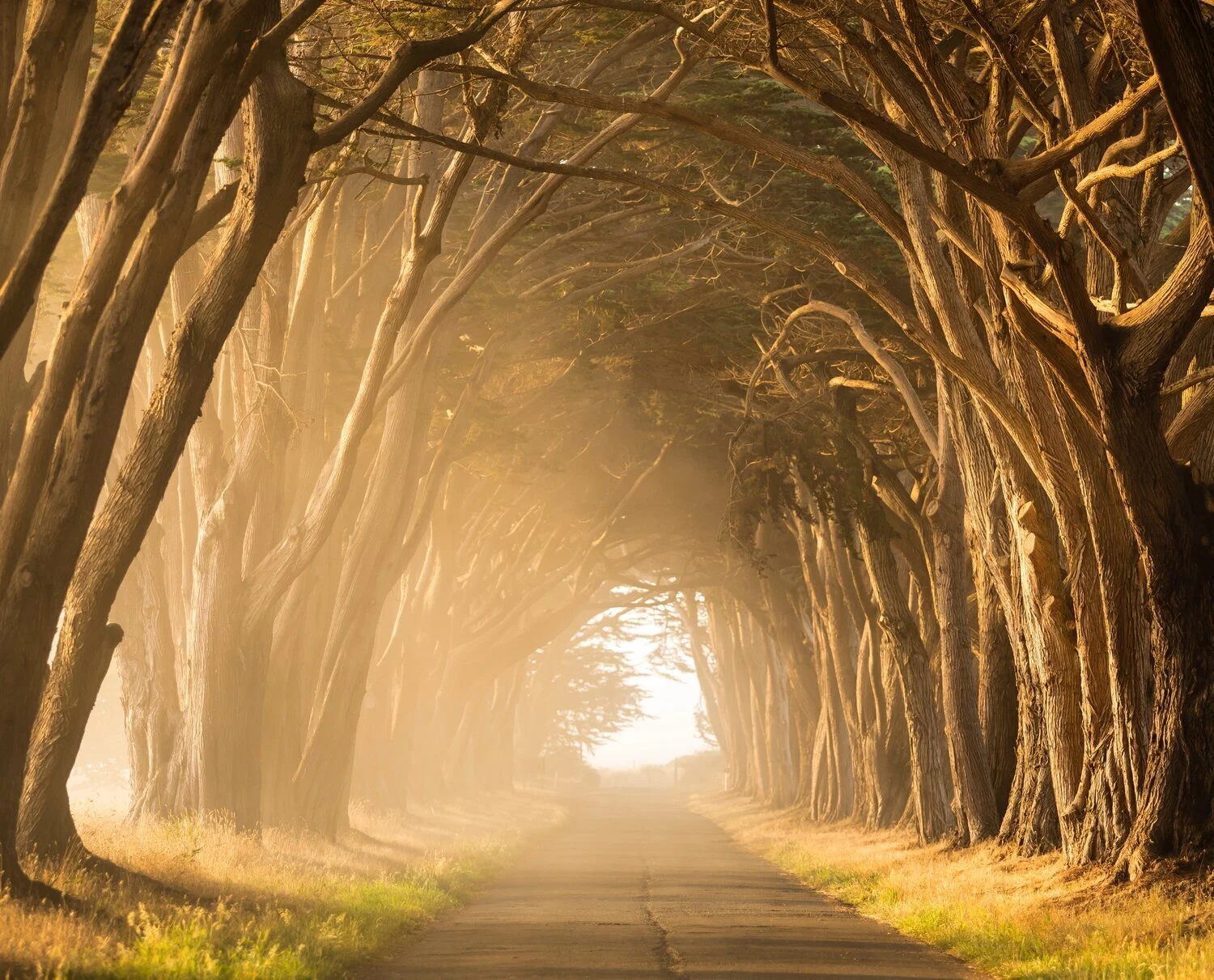When I was 15, I fell head-over-heels in love with the natural world. Learning about and being in nature became an obsession, one that led me to drop out of high school so that I could spend all of my time outdoors. Being able to escape to the oak woodland-covered hills of central California when I was a teenager helped me cope with this challenging time of life. While I was wandering through the woods, friends were also dropping out of school but they were getting addicted to drugs, and even committing suicide. I found a great deal of healing for myself through time spent alone in the natural world.
It was from these experiences that I came to work with other people in the wilderness. I strongly believe that in our modern world there is something sick within all of us. It longs for a connection with nature. A modern rite of passage experience is powerful in part because it connects the participant with nature and provides an atmosphere conducive to recognizing relationship between their environment and themselves. However, in a world increasingly dominated by the fast paced and flashy, nature often appears boring. How do we -- educators, guides, and mentors, create the opportunities for young people to discover these connections?
One answer to this question can be found in a wide variety of books written on nature activities and environmental education. There are many activities designed to engage students and teach them about the importance of the natural world and their connection to it through fun games and initiatives (problem solving activities). Many of these activities are fun and useful, but to me they have often seemed contrived and lacking of a sense of authenticity. This may come from my initiation into nature. I didn't learn about the meaning of a food web from a game where everyone pretends to be a different plant or animal and holds onto a long piece of rope next to the thing that they eat or are eaten by. I went into the woods without food and foraged for my meals. This is not to say that games and initiatives are not a valuable tools for teaching. They can be engaging and fun, especially for younger audiences. But their game-like quality is also limiting. How seriously is someone going to take a game, anyway?
A deeper learning comes from direct experience of the natural world. You can be sure that I understood the relationship between my life and the lives of other parts of the environment after feeding myself from things I gathered in the wild. But I also learned a great deal more than that. I learned empathy, awareness, ingenuity, and self-reliance from that same experience. I learned to appreciate the gifts given to me by other living beings, including the gifts from the people who had provided for me for many years.
I am not saying that we need to take people into nature and make them eat only what they can find. I'm saying we can use activities in the outdoors from which students learn directly from their interactions in and with nature, not just from games. This might be taking their wristwatch and sending them to wander around aimlessly along a stream until we come and get them at some unspecified time later in the day.
In some ways this seems easy: put them in a natural setting and they will learn something. While you never know exactly what the learning outcomes for any experience are going to be, you can design experiences with particular objectives in mind. Self-awareness, self-reliance, awareness of the environment, team work, and compassion are all things which can be learned through experiences in the natural world. The more "real" the experience, the deeper the learning derived from it can be. A student who really gets lost and can't find her way back to camp for a time will feel in her gut her dependence on her family and society. This experience will probably have a much greater impact than if you just asked her to imagine this experience. Besides creating the appropriate activity, a leader should also be able to frame the experience beforehand and to process it afterwards. This helps prepare participants for the activity and for reflection and analyzing the experience afterwards.
Taking people into the wilderness and creating a safe container for their experiences is often all the leader may need to do. The power of the beauty and rawness of the natural world can be more influential on students than any number of planned activities. I experienced this during the backpacking portion of the Wilderness Quest several years ago. We had just finished a grueling day of climbing up to a camp above tree line. We were all together around the camp stoves as water heated. The sun was setting over the mountains to our west, lighting up the horizon and making the huge glaciers on Glacier Peak and the other mountains surrounding us glow with a pinkish hue. After a few minutes of this, one of the students (someone who usually was more interested in talking about video games or anarchy) out of the blue said, "I had no idea that there was anything like this in the world. This is the most beautiful thing I've ever seen in my life. " Other students followed with other comments about how this campsite was unbelievable and made them realize just how important wilderness is and how good they felt about being able to make it there. One student mentioned that if they didn't realize that this existed just 50 miles from where they had lived all their lives, there must be an infinite number of other things in the world which were even more beautiful and amazing to be discovered. At the end of the trip, several students brought up this camp and the sunset as one of the highlights of the trip. For the leaders, it had just been a practical spot to camp to keep on schedule for the trip. After doing all sorts of discussions, activities, and telling stories to try to get the students to realize these things, it was just camping in an amazing spot that really opened them up.
As a leader I now try to think of myself as a student, or a follower, of the natural world. Since my passion for the wilderness first blossomed as a teenager, I have studied the natural world and outdoors skills from a wide variety of perspectives and in several different contexts: from living in a bark hut to academic college classes. But of all the things I have read and human teachers I have worked with, none of them have taught me as much as my direct experience - living, working and playing in the wild.












